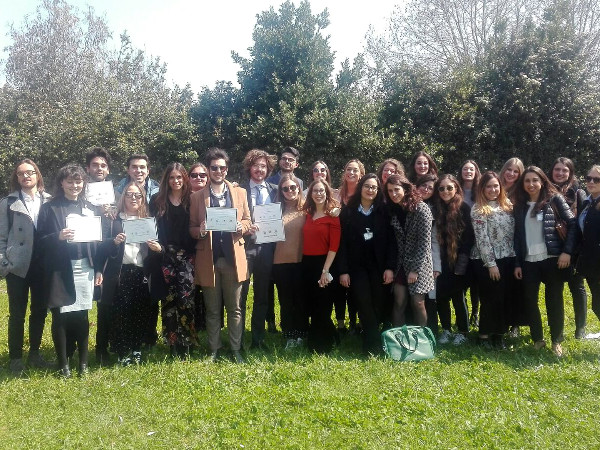Many young people dream of having a future in the world of International Relations: entering into the diplomatic body, working with an NGO, collaborating with the best representative bodies.... The possibilities are endless, but the route to get there is not always clear. Anyone who is still a student, and is approaching the wider world for the first time, can feel overwhelmed in front of so much information, simulations, internships and festivals.
Luckily there are many organisations that form ‘the bridge’ between young people and the world of international careers, making available specific paths to reach their goals.
One of these associations is Giovani nel Mondo, which has been organising the International Career Festival since last year, an occasion for trying a hand at the field you’re most interested in, from journalism to economics or politics.
For years the festival has been supported by Ca’ Foscari, which offers numerous bursaries that cover the entire cost of participating in the festival.
The festival is structured in four sections: the Rome Business Game, a simulation especially for economics and marketing students, the Rome Press Game, a simulation activity for young journalists, the International Careers Course, a practical course for those leaning to international careers, and the famous Rome Model United Nations (MUN), a simulation of the United Nations, especially for International Relations, Political Science and Law students.
The students have the opportunity to understand what it means to work as a professional for four days, helped and followed all the way by experts in the sector: in this way participants can rise to the occasion in an active and immersive way and gain practical skills through the “learning by doing” method. These skills are indispensable in the world of work, and they are completed by the theoretical knowledge acquired at University.
The participants in the Model United Nations, for example, simulate the debates and the work of the UN commissions with every detail, acting as delegates, and therefore representatives of a specific nation. The goal is to seek solutions and compromises on the topics on the agenda, and requires a lot of preparation: the “delegates” must prepare official documents, refine their ability to speak in public, and work together to form alliances on shared opinions.
A theme that accompanies the projects is “team building”: in the Rome Press Game the students are divided into 5 groups, each composed of journalists and translators. Like a real life news room, they make video, audio and online content, to document what happens on the day at the festival.
The participants of the Rome Business Game go face to face with real economists and businesspeople, who assign them their practical cases to respond to and propose a concrete project. The possibility to present their own original proposals to experts in the sector is a great opportunity and an occasion to learn from those who have worked in the industry and market for years.
Finally, the International Careers Course is a real orientation course, which through informative sessions, meetings, and round tables aims to provide participants with an in-depth knowledge of the working world of international careers, including the dynamics, mechanisms and the procedures that regulate it. The methods of access and the types of work linked to the United Nations, the European Union, the Ministry of Foreign Affairs and International Cooperation, and to various NGOs, multinational companies and business banks are examined.
But the International Careers Festival, in addition to being extremely useful for your future career, offers students another vital opportunity: to network with people from all over the world, with a completely different cultural perspective. This year there will be at least 100 different nationalities among the participants of the festival, so you will be able to learn new perspectives and points of view on the world, working in a dynamic and truly international environment.
The goal is to develop innovative ideas working outside the framework we are used to: encourage dialogue, trust and cooperation. This always produces greater development and innovation in a society where diversity is too often associated with fear and discrimination. Events like this play an important role, because they allow people from all over the world to collaborate on a communal project, often strengthening relationships of friendships and mutual respect. It is only thanks to these bases that we can think of building a future based on understanding and sharing diversity.
Teresa Trallori










